
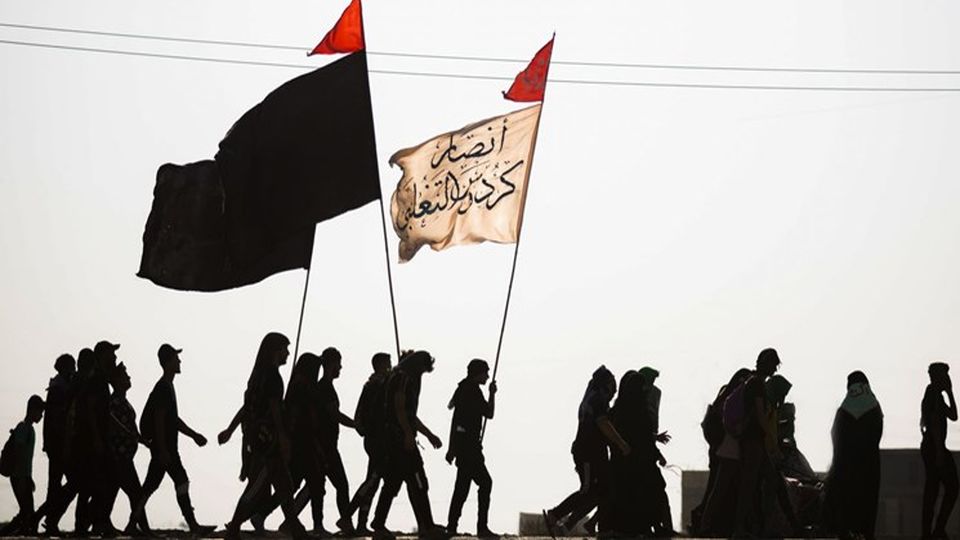
The Impact of Arbaeen pilgrimage on our individual and social life
Visiting the tomb of Imam Hussain (AS) has been popular among Shiites since the time of the Shia Imams who taught Shiites that this pilgrimage plays a significant role in a Shia’s life as quoted from regard Imam Sadiq (AS) in this regard:
Do not pull back from going to Karbala for visiting the shrine of Imam Hussain (AS) out of insecurity or fear because anyone who does, will regret it so much that he wished the grave of Imam Hussain (AS) was near to him. Don’t you like to be one of those for whom the Prophet (PBUH & HP) and Imam Ali (AS) and Lady Fatimah (AS) and the Imams pray? (1)
Having a significant impact on every aspect of our lives, the Shia Imams encouraged us to fulfill this pilgrimage. such a great event which has been discussed and studied through so many aspects for example its history, its political and social impacts and so forth; but seldom have its moral effects on our personality been examined. Arbaeen pilgrimage may change our individual and social life in so many ways from which we’re going to mention some in this text.
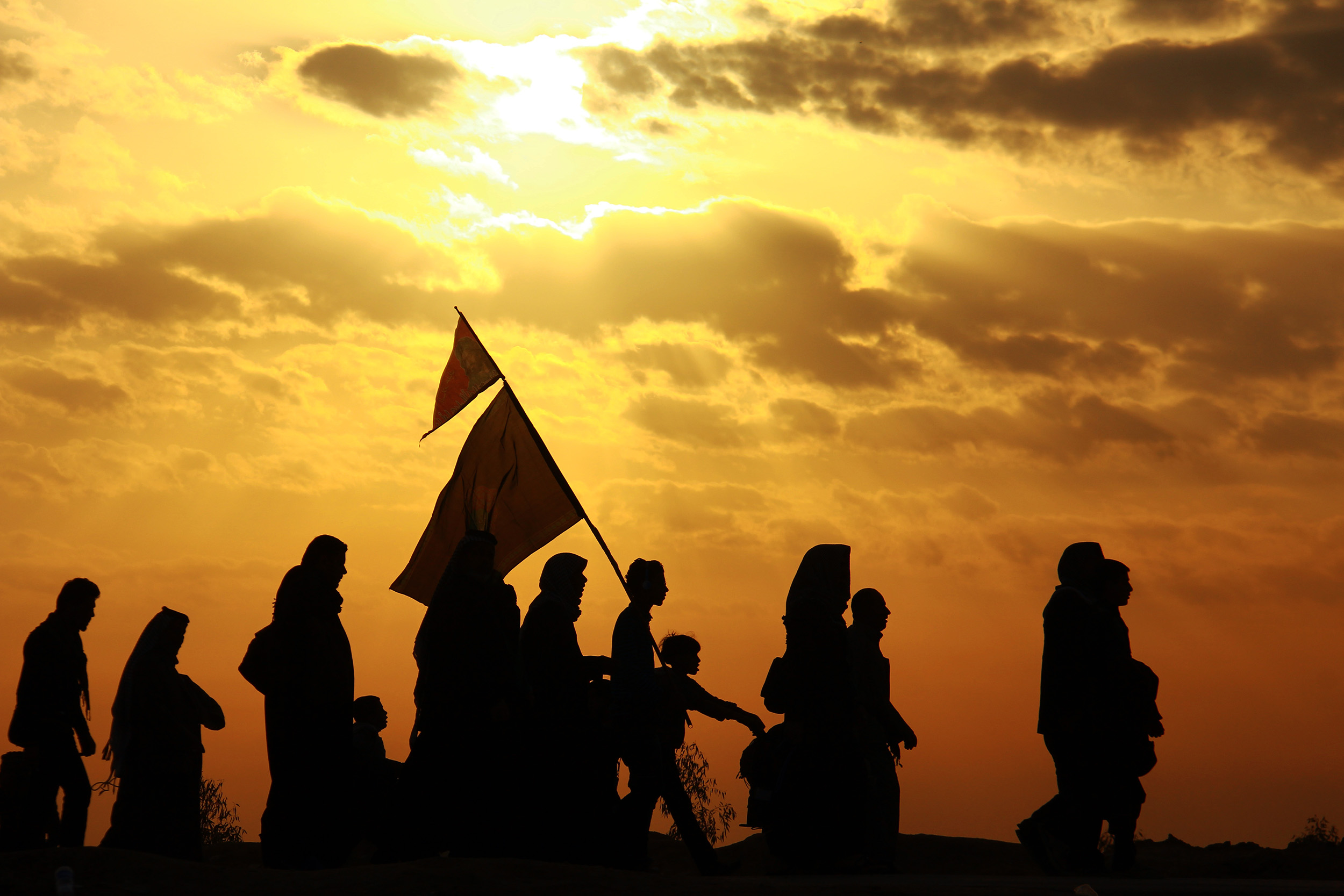
The Impact of Arbaeen
To Purify our Souls
To purify soul in Islamic culture means changing our personality in a way that we obtain so many virtues and redeem our souls from bad habits or sins. Experiencing a very spiritual and calm atmosphere during this journey, anyone can revolutionize their lives and repent from all of their sins.
Imam Sadiq (AS) said:
Should anyone leave their house in order to visit the grave of Imam Hussain (AS) Allah blesses them with a reward for each step they take if they go on foot and forgives one of their sins. (2)
To Practice Patience and Endurance
Imam Hussain (AS) himself is the emblem of patience and endurance as he sacrificed all he had for the sake of Allah even his own life but he didn’t surrender to the tyrant oppressors. He and Lady Zeinab (AS) showed us how much a human can be patient facing the intolerable hardship that happen in their life. Imam Hussain (AS) even chose his companions from the most tolerant ones so that they could accompany him on his journey. For that matter, once he said to his people:
Anyone who is able to resist the sharp edges of swords and the invective of tongues can come with us and anyone who doesn’t must leave us (3)
Nowadays although Iraqi people have made it so much easier for the pilgrims, taking this trip to visit Imam Hussain’s holly shrine (AS) is still full of dangers and hardships . When the pilgrims undergo these difficulties and think about the patience that Imam Hussain (AS) and his companions had, they can practice how to be patient in their own life.
Self-esteem
When a pilgrim puts their heart and soul into reach a certain destination which is the land of Karbala to pilgrimage Imam Hussain’’s shrine on their way they endure so many problems and difficulties, they understand what a human is verily capable of. They can find out that life isn’t just the material world that we see around us but humans are able to see something more in this life and sacrifice all they have for it. It makes people value their souls, believe in themselves and raises their more self-esteem.
The Impact of Arbaeen Pilgrimage on our Social Life
Infaq and Generosity
In Islamic culture, “Infaq” means helping people by giving charity, spending your time for them or even teaching others for free and stuff like that .
During Arbaeen rituals , money isn’t an important issue for the pilgrims as people’s needs are mostly provided by others in Iraq. Most of Iraqi people even save money for a year so that they can help the pilgrims during the Arbaeen rituals with food, medicine and so forth.
This enthusiasm for Infaq roots in the Islamic teachings and the messages of the Quran where says:
The parable of those who spend their wealth in the way of Allah is that of a grain which grows seven ears, in every ear a hundred grains. Allah enhances severalfold whomever He wishes, and Allah is all-bounteous, all-knowing. (2:261)
Also about the importance of the Arbaeen walk Imam Sadiq (AS) says:
For each coin that they spend for the sake of Imam Hussain (AS) Allah will consider it ten thousand coins and rewards them as they have spent that much and Allah will be pleased with them and the Prophet (PBUH & HP) will pray for them and Imam Ali (AS) and the Imams will do so. (4)
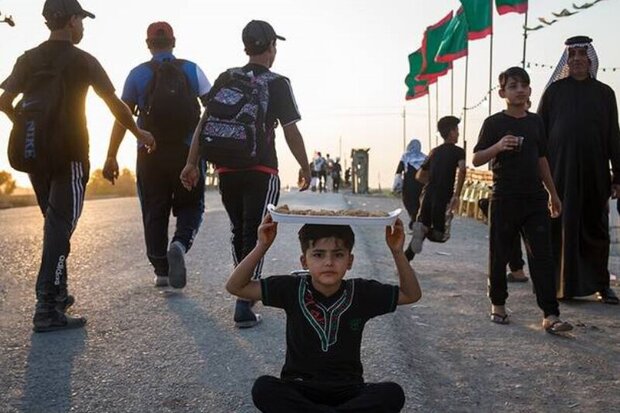
Cooperation and Empathy
The holy Quran says:
Cooperate in piety and God-wariness, but do not cooperate in sin and aggression, and be wary of Allah. (5:2)
Arbaeen walk is a symbol for a society in which people with different ideas, nationalities, ethnicity colors, age groups, and religions work together to reach one common destination. The objective of all these people is the same and it’s making Allah pleased with themselves by commemorating the sacrifice of Imam Hussain (AS). People respect each other and help just for the sake of Allah.
Political Insights
Pilgrims in this ceremony think more about the message of Imam Hussain (AS) which was justice and fighting against tyranny, violence, and doing sins. Imam Hussain (AS) himself says:
I didn’t start this movement so that I could achieve a status among people or to please my desires. I didn’t do it to create chaos or to oppress. I started this movement so that I could make the followers of my grandfather better people; I want to enjoin others to do good works and prevent them from doing sins and I do as my grandfather and my father did. (5)
This walk helps us change ourselves and the others and understand that sitting down and watching people being in pain and oppressed is not what Allah wants us to do. We all are responsible for the circumstances in our society.
Resources
- Kamil az-Ziarat, Ibn Qulavaih, Pg.127
- The same, Pg.143
- Yanabi’ al-Mavaddah, al-Qunduzi, vol.3, Pg.62
- Kamil az-Ziarat, Ibn Qulavaih, Pg.139
- Bihar al-Anvar, Allamah al-Majlesi, vol.44, Pg.329
Share This Article

Why People Mourn for Imam Hussain’s (AS) Martyrdom?
“He turned away from them and said, ‘Alas for Joseph!’ His eyes had turned white with grief, and he choked with suppressed agony.” (12: 84)
Reading the above verse of the Quran, many people may not perceive why prophet Jacob (PBUH) wept so hard on the loss of his son, Josef (AS) until he became blind. And he continued grieving on the loss of Josef so much that his sons told him “By Allah! You will go on remembering Joseph until you wreck your health or perish”. (12: 85) Was his grief merely because of the loss of Josef or the oppression that his brothers had towards him? Or was it because of his disappointment with his other sons who committed such a cruel act toward Josef?
When we read the story of prophets in the Quran, each of them say to their people that I want no reward from you, as “my reward lies only with him who originated me” (11” 51), while among all the prophets of God, Prophet Muhammad (PBUH&HP) made an exception as God ordered him to tell people “Say, ‘I do not ask you any reward for it except the love of [my] relatives.” (42:23)
And therefore, it is for this straightforward order of God in the Quran that Muslims love the household of Prophet so dearly. It is narrated from the prophet who said: “Surely, there exists in the hearts of the believers, with respect to the martyrdom of Imam Hussain, a heat that never subsides.” [1]
Therefore, if you visit Muslims who are weeping and mourning on the martyrdom of Imam Hussain (AS), many of them may not be able to explain why they are doing so. They may only tell you that there are a pain and grief that I feel within my heart, and they may speak of their love for the prophet’s household. However, apart from those feelings and emotions, let’s see what the logical reasons behind mourning for Imam Hussain (AS), his family and companions are?
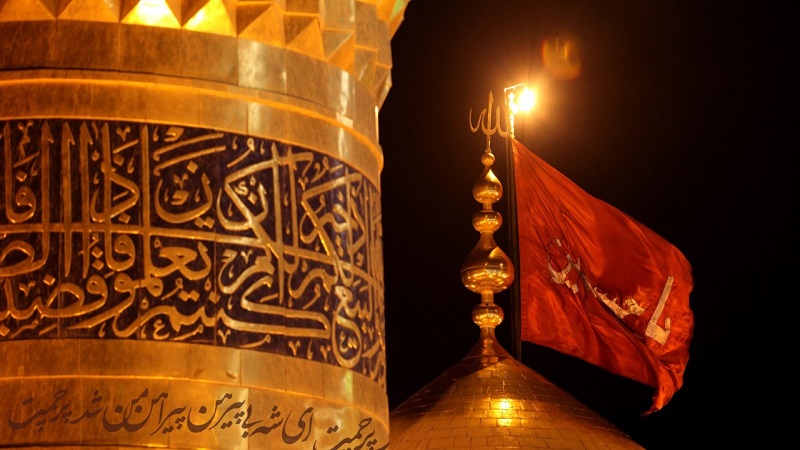
Why mourn for Imam Hussain (AS)?
The mourning for Imam Hussain (AS) that is increasingly spreading all over the world after about 1400 years is one of the miraculous aspects of Imam Hussain’s (AS) uprising. However, aside from strong feelings that Muslims have for the household of the Prophet, there are so many narrations from the progeny of Prophet Muhammad (PBUH) that encourages people to weep on the sorrow of Imam Hussain (AS) and his family. For example the narration from Imam Reza that says: “If you weep over the afflictions of Hussain (AS) such that tears flow from your eyes and fall upon your cheeks, Allah will forgive all your sins whether big or small and less or large in number.” [2]
But why would great Muslim leaders emphasize so hard on spending time and energy on weeping and mourning, while people could spend the same amount of time and energy for doing scientific research or inventing something that helps humanity?
This question is raised by many people, and here I wish to mention a few reasons why reviving the tragedy of Karbala is so important.
1. Allah’s Tradition in Telling Stories
“We will recount to you the best of narratives in what We have revealed to you of this Quran, and indeed prior to it you were among those who are unaware [of it].” (12:3)
When you read the Holy Quran, you see it full of stories of the past generations through which God portrays the most important human values in life.
The event of Karbala is full of lessons that are worth being reviewed every day and night, to help the growth of human society; lessons of heroism, standing against cruelty, defending human dignity, and complete obedience of God.
Holding mourning gatherings is a great reason where people of the society, from all different social classes and different ages, sit together and revise the most important humanitarian issues and values which awaken the spirit of chivalry in them and give them the courage to stand against the oppressors of their time.
2. Conveying the Message to the Next Generations
After the event of Karbala occurred, there were no specific media to convey the message of Karbala and the aim of Imam Hussain (AS) from going to the land of Karbala. From then on, it was only the mourning gatherings that were a place to recite the tragedy of Karbala to others and through it, illuminate the right from wrong. This great event at the time of Imam Hussain (AS) where the rulers of society were trying to hide the way of righteousness was a magnificent move to help the religion of God: “O you who have faith! Be Allah’s helpers, just as Jesus son of Mary said to his disciples, ‘Who will be my helpers for Allah’s sake?’” (61: 14)
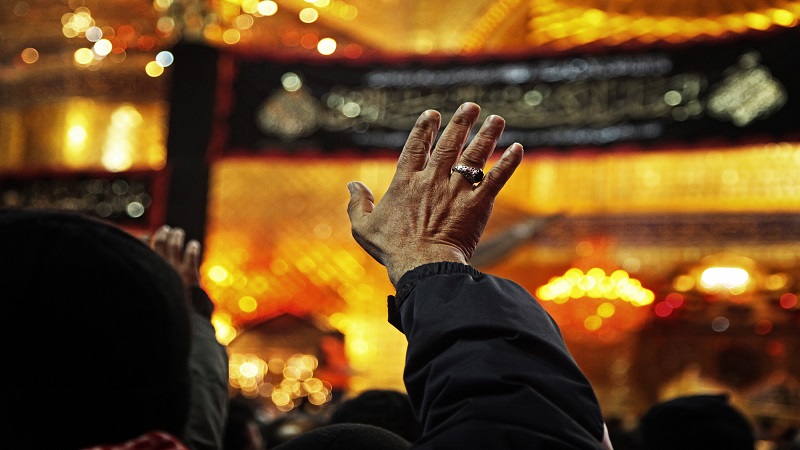
3. Envisage Your Goals, until You Reach Them
In today’s psychology, many believe that if you have a goal to reach, having an image of that goal in mind will help you reach it. In mourning ceremonies for Imam Hussain (AS) we keep repeating the great morals and values of Imam Hussain (AS) and his companions and household. We keep revising their kindness, wisdom, courage, their humbleness toward God and good people and chivalry toward the oppressors, etc.
Naming the above characteristics in such ceremonies and trying to be like those great courageous men and women, is more beneficial than any life-coaching sessions that try to help us revive ourselves and our lives, and it is at everyone’s access for free.
4. We Need a Role Model
If we hate oppression and wish to stand against it, we need a guide to know how to behave in different situations; when to negotiate, when to disagree, when to yell our beliefs, when to make our movement revolutionary and call others to assist us, when to make peace, and finally when is the time to fight against the oppressor?
It is hard to find a true answer to all the above questions when we face the oppressors. But revising the history of Karbala and studying Imam Hussain’s (AS) behavior in a different situation can help us find the choice when we face similar conditions, as he has gone through the same path. Mourning ceremonies are the situation where this history is revised every time, and we can perceive through reading the history that Imam Hussain (AS) did not tend to start a fight from the beginning. At some point he even migrated from his hometown to avoid the war, When he was forced to give allegiance to the corrupt caliph, Yazid, instead of making riots, he left the city, while he had received so many invitation letters from people of Kufah to become their leader. But since the Kufies broke their oath, he had to faith towards Karbala.
However, even in Karbala, he did not tend to fight. But he sent letters and made negotiations. He gave speeches to illustrate the truth for people. He wrote letters to different classes of the society and advised people and invited them to follow the true path. Although his enemies never accepted to change their minds and follow the true path, he still did not start the fight, until he was attacked by the enemy. And he defended himself and his household only when he had no other choice. Therefore, Hussain (AS) and his behavior in different conditions can be a great role model for us, in life.
5. Imam Hussain (AS) for All Humanity
Hussain (AS) does not belong to Muslims only. His behavior and lifestyle represent a way of life for all humans who wish to live a prosperous life. It is in the nature of all human beings who hate oppression and cruelty and would like to stand against it. Hussain (AS) teaches us to have courage and chivalry in life. That is why he faced the army of the enemy on the tenth day of Muharram and said: “If you do not believe in any religion and do not fear the resurrection day, at least be free men in this world.” This saying clearly shows that Hussain’s teachings are not limited to Muslims only, but his way of life can be a role model for all of those who wish to live a humane life.
References:
- Mustadrak al-wasail, vol. 10, p. 31
- Shaykh Abbas Qummi: Nafasul Mahmum, tradition. 9
- Bihar al-Anwar, vol. 45, p. 51
Read More
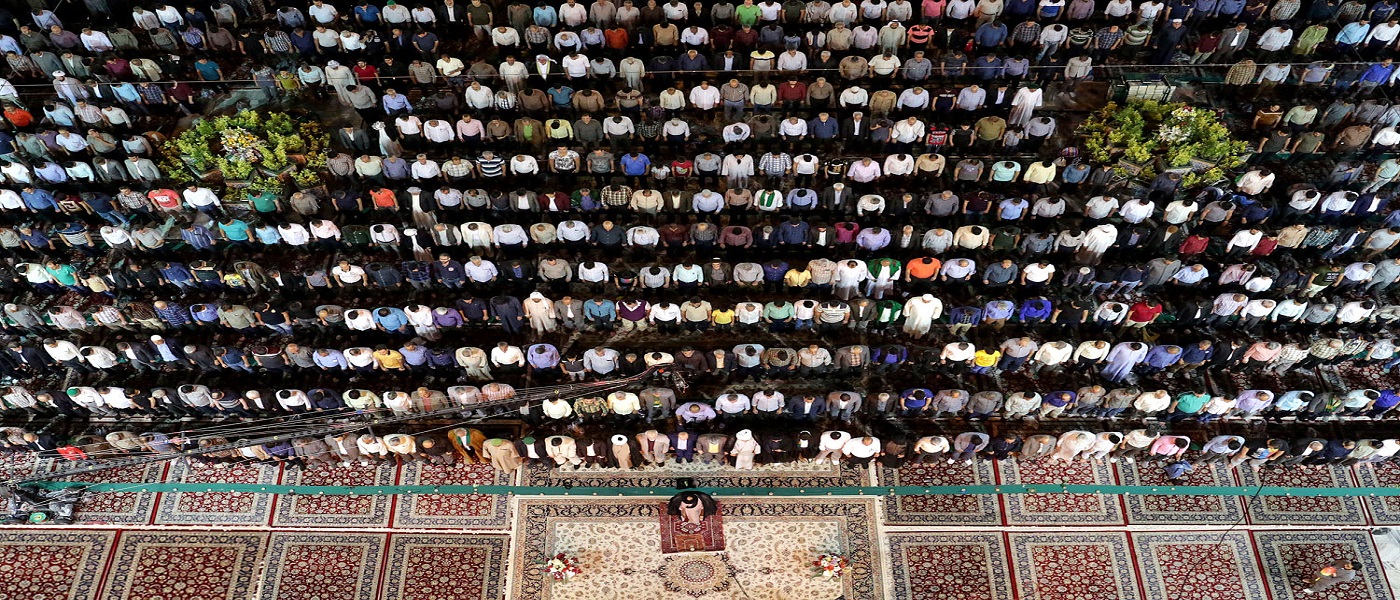
What Is Friday Prayer And How Is It Performed?
“O believers, when the proclamation is made for prayer on the Day of Congregation (Friday), hasten to God's remembrance and leave trafficking aside. That is better for you did you but know.” (62:9)
What do you think as you see a crowd of people gathered in one place, in regular rows? Acting altogether, simultaneously and in a well-organized manner? And they are dressed beautifully and smell good? Especially when they are hundreds and thousands? I see this as a glorious union. You can find this kind of forgathering in a Friday prayer.
Congregations in Islam
Islam emphasizes three congregations: Haj which is held annually in a large scale, weekly Friday prayers and daily congregational prayers. Hajj is God’s plan to bring huge amounts of people together in Mecca, to show the power of Islam and unite the Muslims; besides its specific spirituality. Imam Baghir (AS), the fifth Imam, mentions Hajj as one of the five bases on which Islam is founded. [1]
Friday prayer is of such high importance and value that when a person said to Prophet Muhammad (PBUH&HP) that he has got ready several times to go to Hajj but has not managed to, our prophet (PBUH) told him to attend Friday prayer which is Hajj of the poor. [2]
These show that Friday prayer has many characteristics of Hajj and can be influential in the same way, on a smaller scale though.
Friday
In several narrations from the last prophet (PBUH&HP) and his household, Friday is known as the best night and day of the week. It is recommended to perform full ablution (qusl), wear your best clothes, cut nails, brush your hair and beard, trim mustaches and wear perfume on this day. One of the main reasons for these recommendations is getting ready to show up among Muslims in Friday prayer.
Friday prayer (Salat al-Jumu’ah)
Friday prayer (Salat al-Jumu’ah) is an Islamic ritual. It begins with two khutbahs (orations) by Imam al-Jumu’ah in which he advises people toward observing virtue. In the first one, he elaborates on religious concepts. In the second one, he discusses political and social matters of Muslims’ community.
Then Friday prayer is performed in congregation. It consists of two rak’ahs (parts). Each rak’ah has a qunut (raising hands); in the first rak’ah before ruku’ (bowing), in the second one after ruku’. Friday prayer and the two orations before that are a substitution to the four-rak’ah Salat al-Zuhr. After that, a four-rak’ah Salat al-Asr is performed. Please note that:
- Friday prayer cannot be performed individually.
- Except for the Imam, there should be at least four people for a Friday prayer to be held. [3]
Friday prayer; obligatory or recommended?
Prophet Muhammad (PBUH&HP) says: “Surely God-may be blessed and exalted- made Friday prayer obligatory for you. If someone abandons it in my life or after my death, aiming to belittle or deny it, God will distress them and won’t bless them in their work; and know! their prayer is not accepted, and know! their alms-tax (Zakat) is not accepted; and know! their Haj is not accepted; and know! their good deed is not accepted until they repent.” [4]
In an ordinary situation, i.e. the presence of innocent Imam, Friday prayer is a determinate duty. That is the same duty should be done and it cannot be replaced by another one. But now that the twelfth and last Imam, Mahdi (AS) is absent, Friday prayer is a selective duty. Which means you can choose between performing Friday prayer or Salat al-Zuhr. [5]
Yet, considering its profits, Muslims should pay special attention to Friday prayer.
Why Is Friday Prayer Highly Recommended?
Imam Reza (AS), the eighth Imam, states the importance of Friday Prayer and its Khutbahs comprehensively: “Because Friday is a public rendezvous, khutbah on Friday has been arranged to be a means for governor to advise people and to encourage them to obedience and to warn them of disobedience and to inform them of God’s will about their interest of religion and world and let them know of what has happened to them in the world and of events in which they have disadvantage or advantage.”[6]
Reason of Repetition
- We are forgetful beings. We need to be advised repeatedly so that we may not neglect the afterlife, miss the path, and forget necessities of the society.
- See these daily and weekly prayers as the stages of a ladder. By each prayer, we should take a step upwards. By praying, we are communicating with God and by practicing in a regular program, we can enhance the quality of this communication.
References:
- Al-Kafi, v.2, p.18
- Wassail al-Shi'a, v.7, p.300
- Khamenei.ir
- Wassail al-Shi'a, v.7, p.302
- Khamenei.ir
- Wassail al-Shi'a, v.7, p.344
Read More

